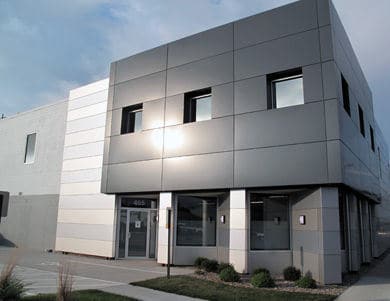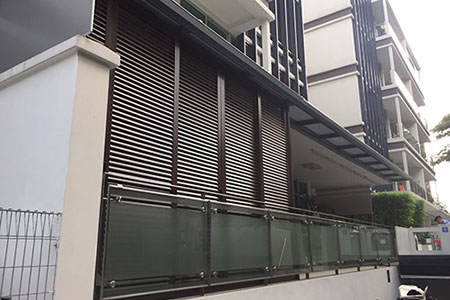The main mechanical properties of aluminum composite panels are bending strength, flexural modulus, penetration resistance, shear strength, peel strength, etc. These are important indicators related to the reliability and safety of aluminum composite panels an important basis for structural design.
The main applications of the aluminum composite panels are curtain wall, indoor and outdoor decoration. Among them, curtain wall is the external maintenance component of the building, also known as hanging wall, which does not bear the main structural load, mainly bearing its own weight, wind load, earthquake action, and temperature action.
The self-weight is the gravity load, and the constant load that often acts. Because the density of the aluminum composite panels is small, the stress generated by the mass is small and does not play a major role.

The latter three types are variable loads, wind loads are main for vertical curtain wall, and its value can reach 2.0-5.0kpa. As for earthquake action, due to the light weight of aluminum composite panels, even if there was the maximum seismic action coefficient, it values only could reach 0.1-0.8kpa, far less than wind force, and the temperature effect is also very small.
Therefore, aluminum composite panels are used as curtain wall materials, and wind pressure resistance is a major consideration. When the wind acts perpendicularly on the aluminum composite panels, the aluminum composite panels mainly produces bending deformation, so the bending strength and the bending elastic modulus are one of the important properties and parameters of the curtain wall aluminum-plastic composite panel.


